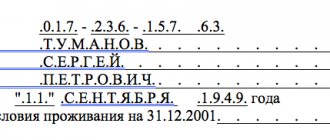What it is?
Indexation is usually understood as an increase in the wage coefficient associated with an increase in prices for services, as well as goods.
This procedure is carried out in order to rehabilitate the ability to purchase. There are two indexing methods:
- Expected – occurs taking into account the price increase.
- Retrospective is an increase in wages that takes into account the already existing situation with the price level.
Many employers do not see the differences between indexing and salary increases , but there are differences, and significant ones. When the salary increases, this may affect one or more employees.
At the same time, the percentage of increase in financial remuneration for each employee may be different. Some were lucky and their wages were increased by fifty percent, while others were increased by only ten.
When indexing, an increase in wages occurs for all categories of employees working in the organization by the same factor.
Indexation depends on the minimum wage , inflation rate and other external factors.
Read all about the minimum wage in our article.
Article 134 of the Labor Code of the Russian Federation gives a clear concept that remuneration for labor activities should be indexed due to rising prices for purchased services and various categories of goods. If an employee works in a budgetary institution, indexation is carried out on the basis of the relevant law and municipal legal acts.
Another document establishing a mandatory procedure for carrying out general indexation is the letter of Rostrud dated 04/19/2010 No. 1073-6-1 . If an employee is registered in a commercial organization, then the right to perform indexation belongs to the manager. It establishes the indexing procedure in local acts of the enterprise.
If this does not happen, then the commission may present him with another article regulating this issue. This is article 5.27 of the Code of Administrative Offenses of the Russian Federation.
The procedure for salary indexation in 2019
To avoid claims from regulatory authorities and not to defend their case in court, the employer in 2020 must index the salaries of employees.
If the employer is not a budgetary institution, indexation is carried out in accordance with a local act. For example, an agreement on wages, a collective agreement or a provision on wage indexation. If the organization does not have such an act, it must be developed and approved.
The Labor Code of the Russian Federation does not provide for any requirements for the procedure for indexing salaries of employees of commercial organizations. Therefore, employers who do not receive budget funding have the right to choose any procedure and conditions for indexation (this is confirmed, for example, by review of judicial practice No. 4, approved by the Presidium of the Supreme Court of the Russian Federation on November 15, 2017).
The employer independently, taking into account his economic situation, determines the following conditions for wage indexation:
- frequency and specific terms of indexing;
- indexation value;
- list of payments subject to indexation.
Salaries are indexed in accordance with local regulations, and the basis for indexation is the order of the employer. This order determines the date from which the salary is increased, and also indicates the amount of indexation (for example, as a percentage of the employee’s salary).
Despite the fact that the indexation amount is determined by the employer himself, it will be better if the salary increases at least by the inflation rate. We remind you that according to Rosstat, inflation in 2018 was 4.3%. An increase in salaries by 4.3% is not a mandatory condition, but this will avoid possible claims from controllers.
Read more: What does a writ of execution look like based on a court decision?
The order for wage indexation is signed by the head of the organization and brought to the attention of all employees.
Is this process the responsibility of the employer?
The employer makes a personal assessment of the increase in prices for food and services, and on the basis of this he must make periodic indexations.
If the head of an enterprise is in no hurry to index wages or generally denies all the demands made on him by his employees, such actions must be appealed in court.
In addition to going to court, an employee has the right to write a complaint to the Labor Safety Inspectorate and report that the employer is not interested in employee requests regarding indexation. In an appeal, an employee may refer to Article 353 of the Labor Code of the Russian Federation .
There is no fixed indication in the legislation on salary indexation, but one should take into account the fact that if local regulations do not stipulate indexation periods, then, according to Letter of Rostrud dated 04/19/2010 N1073-6-1, appropriate changes must be made to the documents.
The salary is higher than the minimum wage, is it possible not to index it?
Many employers, in order to save their budget, try to avoid this process by not entering indexation data into their regulatory documents, thinking that the procedure for changes has not been established, but such employers are mistaken.
At the next inspection by the labor inspectorate, the violation will be discovered. For such violations, a system of fines and regulations is applied. The management of the organization is obliged to index the income of subordinates; it must be carried out for the entire current staff working in accordance with the Labor Code.
https://youtu.be/w0990pSNmiw
Responsible entrepreneurs take into account the increase in pricing policy and promptly carry out the procedure for indexing the income of their subordinates.
Indexing for commercial organizations can be done in two ways:
- Accounting for changes in price category indices;
- According to the inflation rate.
You can view inflation data in the law on the federal or regional budget.
The need to organize such a process is determined by a decrease in the consumer ability of workers. Prices rise, but citizens' income remains unchanged.
Consequently, the quality of life of the working population is falling. For this purpose, a wage indexing system has been developed.
Some employers provide annual salary increases. This procedure has nothing to do with indexation, and it is only at the discretion of the employer. Indexation is a mandatory procedure and does not depend on the will of the employer.
The introduced innovations for the wage indexation procedure did not change in 2017. For budgetary institutions, the rules of conduct are approved by regulatory legal acts.
They are carried out for public sector employees in different ways: this can be an order of the Government of the Russian Federation or the executive bodies of a constituent entity of the Russian Federation, or a municipality.
Commercial organizations will conduct it at their own discretion. The indexing system was developed mainly in large companies and organizations. The indexation system has a serious drawback - it is delayed by 2 months, because such a period is necessary for its development and implementation.
The issue of wage indexation for the working population is acute. People working in commercial establishments have to rely only on the integrity of their employer, but it is much easier for employees of government agencies; they rely on the decisions of government bodies.
Employees of commercial institutions may be left without wage indexation. Employers may not include an indexation clause in the collective agreement. The employer may also refer to the difficult and unstable financial situation of the company.
Starting from 2020, not only the Labor Code of the Russian Federation, but also Rostrud obliges indexation of wages for all employers without exception. If local regulations of organizations do not contain this provision, then the employer is obliged to develop and make the necessary changes and additions.
If an employee finds out that he is entitled to indexation of wages and the employer has this stipulated in regulatory legal documents, then even after dismissal, the employee can sue the employer. Mostly, such cases are won by employees, but not by employers.
Wage indexation does not always mean an increase in wages; this may also happen. By indexing part of the salary, the employer can reduce the percentage of bonuses or the coefficient of bonuses for employees.
Indexation of wages is aimed at increasing the standard of living of the working population. In budgetary and commercial institutions, this system works in different directions. Budgetary organizations have a higher and more reliable degree of indexation. Commercial organizations have a freer choice of this system.
The employer can develop this system in more than one direction. The employer can independently choose the indexing system that is more convenient and acceptable for him.
Also, the working population has the right to demand indexation from their management. The state labor inspectorate can protect the rights of workers in this matter.
The judiciary and Rostrud are also on the side of the working population. Most of the workers' appeals in the courts were considered in favor of the working population. Judicial practice may also make a different decision, providing for the recovery from the responsible person of the difference between the salary after indexation based on indicators of the increase in the cost of goods, and the amount of income that was paid in fact.
As a rule, in the course of legal proceedings it can be established that a lower value for indexing the cost of consumer goods has no basis for increasing the income of working citizens.
From this video you will learn about wage indexation.
Periodic increases in workers' wages are called indexation. The economic essence of such a procedure is quite simple to explain - in Russia, prices for food, housing and communal services, gasoline and other goods and services increase annually, and an increase in wages essentially compensates for the consequences of inflation.
Indexation should be carried out even if wages exceed the minimum wage (both federal and regional). This is explained by the fact that indexation should be carried out in connection with an increase in consumer prices (Article 134 of the Labor Code of the Russian Federation).
If the procedure for indexation is not fixed in local regulations and the salary increase does not occur in accordance with this procedure, then such a salary increase will not replace indexation, and the company may be held accountable for failure to carry it out.
It is important to note that salary increases will not always be indexation. If the local regulations of the company do not establish an indexation procedure or the agreement to the employment contract does not indicate that the salary increase occurs for indexation purposes, any salary increase will be regarded as the “good will of the employer”, which does not exclude the need for indexation.
Unfortunately, even in the best of times, not all domestic companies compensated for the inflationary losses of workers by regularly increasing their wages, not to mention during periods of economic instability. Not every organization today can boast of a clearly structured mechanism for indexing the salaries of its employees.
In this regard, the question arises: are employers required to index employees’ wages? And if so, under what conditions and within what limits?
What the law says
In Russia, not only is the right of every employee to timely wages guaranteed, but also the right to increase its material content, including through indexation in connection with rising prices for goods and services (Article 130. Article 134 of the Labor Code of the Russian Federation). At the same time, in relation to commercial organizations, these provisions of the Labor Code of the Russian Federation are interpreted ambiguously in practice.
Opinion of judges of the Constitutional Court of the Russian Federation and regulatory authorities
The Constitutional Court of the Russian Federation has repeatedly pointed out the inadmissibility of practices in which workers are deprived of guarantees of an increase in the level of real wages. And the requirements of the Labor Code of the Russian Federation regarding the indexation of wages, in the opinion of the Court, are quite definite and do not allow for different interpretations.
About whether, when indexing wages in accordance with Art. 134 of the Labor Code, tariff rates and salaries for all employees of the organization will be increased, find out from the “Answers of Legal Consulting GARANT. Labor relations" Internet version of the GARANT system. Get free access for 3 days!Get access
Thus, the judges of the Constitutional Court of the Russian Federation confirm that the established Art. 134 of the Labor Code of the Russian Federation, the obligation of employers to index wages applies to all employers without exception, including those not related to the public sector.
We invite you to read: Redevelopment of non-residential premises in an apartment building 2019
At the same time, the judges clarified that in commercial organizations the indexation mechanism can be determined not only when concluding a collective agreement, other agreement, or in a local regulatory act, but also in an employment contract (Definition of the Constitutional Court of the Russian Federation of November 19, 2020 No. 2618-O . Determination of the Constitutional Court of the Russian Federation of July 17, 2014 No. 1707-O. Determination of the Constitutional Court of the Russian Federation of June 17, 2010 No. 913-O-O).
Thus, the Constitutional Court of the Russian Federation made an important conclusion: wage indexation should be provided to all persons working under an employment contract.
A similar point of view about the obligation of all employers, without exception, to carry out wage indexation is shared by Rostrud, which, even before the adoption of the first of these determinations by the Constitutional Court of the Russian Federation, in particular clarified that if the employer’s local regulations do not contain provisions on indexation, then he must or develop a special document, or make the necessary additions to existing ones (letter of Rostrud dated April 19, 2010 No. 1073-6-1).
In September 2020, the department not only confirmed this position, but also pointed out the inadmissibility of the employer ignoring this obligation, regarding this as a violation of labor legislation (response to the appeal published on the information portal of Rostrud “Onlineinspektsiya.RF”, September 2015).
Rules for indexing
Before carrying out indexation, it is important to know that it is carried out in relation to all employees carrying out activities for the benefit of the company on the basis of an employment contract.
Unfortunately, those categories of citizens who work under civil contracts do not fall under such indexation provided for by the Labor Code.
Managers themselves must understand that it is necessary to carry out such a procedure in a timely manner in order to show special loyalty to those people who devote a lot of time and effort to the benefit of the organization. The frequency of indexations must be specified in advance in the local regulatory framework of the enterprise.
Indexation must begin when the price index for market products exceeds 101 percent . The calculation is carried out from the beginning of the month after the current published figure. Calculations are carried out by Goskomstat.
If the decision was made in favor of indexing, then some documents need to be completed. If its presence was not specified in the local regulations of the enterprise, then this point must be added immediately. When prescribing indexing, you need to carefully consider such details as:
- What frequency will be indicated for the procedure. This could be a month, six months or a year.
- What payments will be affected by the change? This could be a salary, bonus or additional payment.
- The procedure for choosing the indexing coefficient.
Terms and size of indexation
The legislation does not establish the terms and amount of indexation.
In any case, there must be some periodicity. For example, you can index on January 1 of each calendar year. At the same time, it is not at all necessary to index salaries from the beginning of the year. This can be done in May or June - the main thing is to fix the deadlines in local acts or contracts with employees.
The employer must determine the percentage of salary increase independently. At the same time, Rostrud recommends focusing on the level of inflation at the end of the year according to Rosstat.
An entry in a local regulatory act may be as follows: “wage indexation is carried out for all employees of the company from February 1 of each calendar year by increasing the employee’s salary by 4% and is formalized by signing with the employee an appropriate agreement to the employment contract to increase the salary.”
What influences wage indexation?
There are situations when indexation work was carried out after the end of the billing period, but in the interval before the start of payments of the average salary. In this case, the salary is increased by the amount of the average salary for the given pay period.
If indexation occurred during the payment period, then an increase should be made by the amount of the average earnings coefficient from the moment of indexation to the moment when the calculation should occur.
When carrying out actions to set indexation in the billing period, payments will increase by the coefficient that begins from the first stage of the period until the month when indexation occurs.
Regulations and order of procedure
The regulation on wages consolidates the process of carrying out the indexation procedure at the enterprise. Sometimes there are cases when a new employee comes to get a job, but the Regulations on remuneration have changed, then an additional agreement must be concluded to regulate such issues.
The Regulations must stipulate:
- deadline for indexing;
- the formula by which this procedure is carried out;
- period for accepting the new amount.
Download a sample of the Regulations on the procedure for indexing wages here for free.
The manager consolidates the innovation with an order and changes the staffing table, where he indicates new amounts for salaries or other payments to existing employees. An increase in an employee’s salary significantly affects the amount of payments related to this issue.
The document necessarily contain the following parameters:
- Date and order number.
- Name of the organization.
- Information about the production of indexing.
- The coefficient by which payments will be increased.
The following may be involved in drawing up an order:
- secretary;
- legal advisor;
- personnel officer;
- accountant.
The main condition for such an employee is clear knowledge and ability to draw up such orders.
After the drafting procedure, the document is submitted to the manager for signature. There is no specific sample that could be taken as the basis for the order. The main thing is that it is drawn up within the framework of the law and the general policy of the company.
Often the text indicates
the basis for indexing and links to articles regulating this procedure.
The contents of the document must indicate the persons responsible for carrying out the indexing. It is recommended to include their initials and positions. The paper that will be used to create the document is not significant. This can be a simple white sheet of A4 format or an organization’s letterhead, but the main thing is that this document must bear the signature of the main manager or a person who has the authority to sign such documents.
The order can be certified by a seal, but this requirement is not fundamental. All employees affected by this innovation should familiarize themselves with the issued order
After review, the order for indexing is transferred to a folder with special documents. Since this document is classified as administrative, access to it should be limited .
After losing its relevance, it is placed in the archive. There it is for a period established by law or local regulations. This period cannot be less than three years . After its storage period has expired, it is recommended to dispose of the order.
Labor Code norms
What it is?
2. Measures to ensure an increase in the level of real wages include, first of all, wage indexation in connection with rising consumer prices for goods and services. The procedure for indexing was established by the Law of the RSFSR of October 24, 1991 N 1799-1 (as amended on December 24, 1993
) “On the indexation of cash income and savings of citizens in the RSFSR.” Indexation is understood as a mechanism established by the state to increase cash incomes and savings of citizens in connection with rising consumer prices in order to maintain the purchasing power of cash incomes and savings of citizens. To index the cash income and savings of citizens, the consumer price index for food products, as well as paid services, is used. Wage indexation is carried out by multiplying its nominal value by the established price index.
Unfortunately, the mechanism provided for in the Law of October 24, 1991 was not applied to wages even once. After this Law was declared repealed (Article 156 of the Federal Law of August 22, 2004 N 122-FZ), the indexation procedure has not been determined.
3. Along with indexation, the Law of October 24, 1991 provided for the possibility of using other methods of state regulation of household incomes. In the Russian Federation, a method used to ensure growth in the level of real wages is the regular revision of the minimum wage, which has increased more than a thousand times since the adoption of the Law on Indexation to the present day (taking into account the denomination of the ruble in 1998).
4. The procedure for revising the minimum wage in organizations financed from the relevant budgets is established by laws and other regulatory legal acts of state authorities of the Russian Federation, constituent entities of the Russian Federation or local governments.
Thus, the procedure for changing the minimum wage in organizations financed from the federal budget is established in federal laws and acts of federal executive authorities. Changes in the size of the minimum wage in organizations financed from the budgets of constituent entities of the Russian Federation are established by acts of government bodies of the relevant subjects, in organizations financed from local budgets - by acts of local government bodies.
5. The procedure for indexing wages in organizations that are not financed from the budget is established by a collective agreement, agreement or local regulations. These acts must establish an indexation mechanism, including its frequency, the procedure for determining the amount of indexation, a list of payments subject to indexation, etc.
To ensure equal rights and opportunities for workers and to prevent discrimination, wages of all categories of workers should be subject to indexation. However, since in accordance with Part 3 of Art. 3 of the Labor Code of the Russian Federation, it is not discrimination to establish differences and preferences that are due to special concern for persons in need of increased social protection, and these include persons with low incomes; wage indexation is possible only for those workers whose income is below the established level for these purposes in a collective agreement, agreement or local regulation (for example, below the subsistence level, etc.).
- ‹ Article 133.1 of the Labor Code of the Russian Federation. Establishment of the minimum wage in a constituent entity of the Russian Federation
- Up
- Article 135 of the Labor Code of the Russian Federation. Wage Setting ›
Article 134. Ensuring an increase in the level of real wages
Ensuring an increase in the level of real wages includes indexation of wages in connection with rising consumer prices for goods and services. State bodies, local government bodies, state and municipal institutions carry out wage indexation in the manner established by labor legislation and other regulatory legal acts containing labor law norms, other employers - in the manner established by the collective agreement, agreements, local regulations.
Those. think for yourself, decide for yourself what is written there - to have or not to have)))
https://youtu.be/yPO3hfY08BY
Frame Inhabitant of the Forum Messages: 33 Registered: Sep 29, 2012, 12:43
Article 130. Basic state guarantees for remuneration of workers
The system of basic state guarantees for remuneration of workers includes: measures to ensure an increase in the level of real wages;
We suggest you familiarize yourself with: Housing Code total area of the apartment
Wasserman Forum Inhabitant Posts: 39 Registered: Sep 28, 2011, 08:52
Listen, of course I’m wildly sorry, but I found these articles of the Labor Code of the Russian Federation first of all, and have already seen them. And I would really like to see answers to questions, and preferably, if anyone has encountered this, judicial practice.
RasMus is still new OK Posts: 2 Registered: June 03, 2015, 00:59
Can an employee prove in court that failure to do so is illegal? If anyone has practice, please share.
SUPREME COURT OF THE REPUBLIC OF MORDOVIA APPEAL DECISION dated April 30, 2020 in case No. 33-917/2015
Clause 4.4. The collective agreement "Saransky VRZ" for 2011-2013 stipulates that the indexation of workers' wages is based on data from the Federal State Statistics Service on the growth of consumer prices for goods and services, and an indexation coefficient is applied that is not lower than the indexation coefficient used in JSC Russian Railways "
The increase in real wages is carried out as the efficiency of operations increases, the income of JSC Saransky VRZ grows, ensuring that the growth rate of real wages in JSC Saransky VRZ is not lower than the growth rate of real wages in the Russian Federation (case file 43). The court It was also established that the amount of wage indexation was not paid to the plaintiff.
Article 134 of the Labor Code of the Russian Federation provides that ensuring an increase in the level of real wages includes indexation of wages in connection with rising consumer prices for goods and services. State bodies, local government bodies, state and municipal institutions carry out wage indexation in the manner established by labor legislation and other regulatory legal acts containing labor law standards, other employers - in the manner established by the collective agreement, agreements, local regulations.
Resolving the dispute on the merits and refusing to satisfy the claims regarding the recovery from the defendant in favor of K. of the amount of wage indexation, the court of first instance established the difficult financial situation of the enterprise, the lack of income growth and took into account that wage indexation does not provide a real increase its contents, citing the fact that the plaintiff missed the deadline established by law for filing a lawsuit with the relevant claims..
https://youtu.be/O6FZf9GLhQU
The panel of judges, taking into account that, within the meaning of the relevant terms of the collective agreement in their systemic relationship with the above legal provisions, the employer’s obligation to index wages is not unconditional, but depends on various factors, including the economic indicators of the enterprise, agrees with the conclusions of the court of first instance , considering them based on the correct application of the above legal provisions governing controversial legal relations. .
The arguments of the appeal that the plaintiff was not aware of the violation of the right to indexation of wages are rejected by the judicial panel, since, having received monthly wages during the disputed period, K. actually knew about the violation of his rights to indexation, however, the court with the relevant He filed his demands only on December 10, 2014, that is, outside the three-month period established by law for going to court to protect his violated labor rights.
MOSCOW CITY COURT OF APPEALS dated March 12, 2015 in case No. 33-7487
From clause 2.3 of the collective agreement of OJSC First Automobile Plant named after. G.L. Krause" it follows that the wages of all employees of the organization are indexed at the end of the quarter in which the consumer price growth index reached a cumulative total of 106%. The employer sets the specific amount of indexation in each calendar year by local act, taking into account the consumer price growth index and financial capabilities for that year.
According to the response from ROSSTAT dated November 14, 2014, the consumer price index for goods and services in the Russian Federation in the 1st quarter of 2014 was 102.3; in the 2nd quarter it was 102.4; in the 3rd quarter 101.4. From the minutes of the meeting of the executive directorate of the company dated November 13, 2014, it follows that a decision was made to proceed in accordance with clause 2.
3 of the collective agreement, an increase in wages by 7.1%. Thus, wage indexation should be carried out by all employers depending on the increase in consumer prices for goods and services.— Resolving the dispute and deciding to refuse to satisfy the claims, the court reasonably proceeded from the fact that the indexation of wages carried out by the defendant corresponds to the increase in consumer prices, as provided for in Art.
134 of the Labor Code of the Russian Federation, and also meets the purpose of wage indexation.. The arguments of the appeal that the employer is obliged to carry out wage indexation, since he is entrusted with the obligation to establish the real level of wages, do not entail the cancellation of the judicial act due to groundlessness.
The Labor Code does not establish any requirements for the indexation mechanism, therefore the employer has the right to choose any criteria for indexation and provide for any procedure for its implementation. In relation to the legal relations under consideration, the employer established a salary increase of 7.1%; the court had no legal grounds for indexing the plaintiff’s salary.
How to calculate - indexing example
Let’s assume that the price inflation index for 2020 based on the 2015 situation was:
February period -103.8%; June period -106.1%; August period -105.9%; November period -104.7%.
If we give an example taking into account the daily rate, then it turns out that taking into account the daily rate of one thousand rubles by the end of December 2020, the rate was recalculated.
Then the result will be like this:
- 1250 daily value in rubles × 103.8% = 1298 rubles;
- 1250 daily value in rubles × 106.1% = 1326 rubles;
- 1250 daily value in rubles × 105.9% = 1324 rubles;
- 1250 daily value in rubles × 104.7% = 1309 rubles.
An example on how to calculate the indexation of wages in the salary part. The salary at the end of December 2020 was 20,000 rubles/month. Svet LLC carried out the indexation procedure, and the rate for each day was recalculated. It turned out like this:
- 18,500 monthly norm in rubles × 103.8% = 19,203 rubles from March 1, 2020;
- 18,500 monthly norm in rubles × 106.1% = 19,629 rubles from July 1, 2020;
- 18,500 monthly norm in rubles × 105.9% = 19,592 rubles from September 1, 2020;
- 18,500 monthly norm in rubles × 104.7% = 19,370 rubles from December 1, 2020.
Position of the Ministry of Labor and Rostrud
The Constitutional Court has repeatedly ruled that wage indexation is necessary. The court believes that wage indexation is aimed at ensuring an increase in the level of real wage content, its purchasing power and, by its legal nature, is a state guarantee for the payment of workers in accordance with Art. 130 and 134 of the Labor Code of the Russian Federation.
Over the years, employers have tried to challenge the norms of the Labor Code of the Russian Federation, citing the uncertainty of interpretation and the lack of a clear indexation procedure in the Labor Code of the Russian Federation. However, the court insists that indexation is mandatory (rulings of the Constitutional Court of June 17, 2010 No. 913-O-O, of November 19, 2015 No. 2618-O, of July 17, 2014 No. 1707-O).
https://youtu.be/Aa7pA99GRzk
The position of Rostrud agrees with the opinion of the courts. Rostrud has repeatedly noted that indexation is an obligation, not a right of the employer (letter of Rostrud dated 04/19/2010 No. 1073-6-1, memo on wages on the Rostrud website).
The Ministry of Labor also considers indexation a mandatory procedure (letter dated December 26, 2017 No. 14-3/B-1135).
Stages of calculating the coefficient for remuneration
The calculation of the coefficient is carried out in several stages:
- Indexing the average salary level by a coefficient for increasing the salary. It is calculated by dividing the salary after the increase by what it was before the new indexation.
- The second stage is to index average earnings by a free coefficient for increase. This method is used if the employee had bonuses, additional payments and extra payments.
In order to calculate the increase factor, you need to divide the total amount of allowances and bonuses after the increase by the amount that was before indexation.
The use of one or another method is applied individually .
Index of real and nominal wages
In order to calculate such dynamics, you need to use special indices.
For nominal payment, the calculation is made using a certain formula, which determines the ratio of the current salary to last year’s payments:
Ind n = Salary tek g / Salary pr g x 100 (%)
Ind n is the index value for nominal wages, expressed as a percentage.
Salary tek g is labor payment during the current year.
Salary pr g is the salary for the last year’s period.
This simple formula indicates a direct proportionality between the index value and the growth of nominal payments, which do not depend on the economic situation in the country.
Nominal earnings for an average month are set by enterprises based on statistical reporting.
In order to calculate the activity level of real income, you need to use a calculated value - an index. For these purposes, use the formula:
Ind r = Ind n / Ind pot c (%)
Ind p is the value of the income index in real form. Ind n is a fixed income index of a nominal type. Ind pot c is the value of the price index for consumers.
By comparing the levels of nominal and real wage indices, we can find out:
- current unemployment rate;
- the presence of a qualified staffing shortage;
- inflationary processes;
- identify the need for action.
https://youtu.be/-uCmi_MiCik








